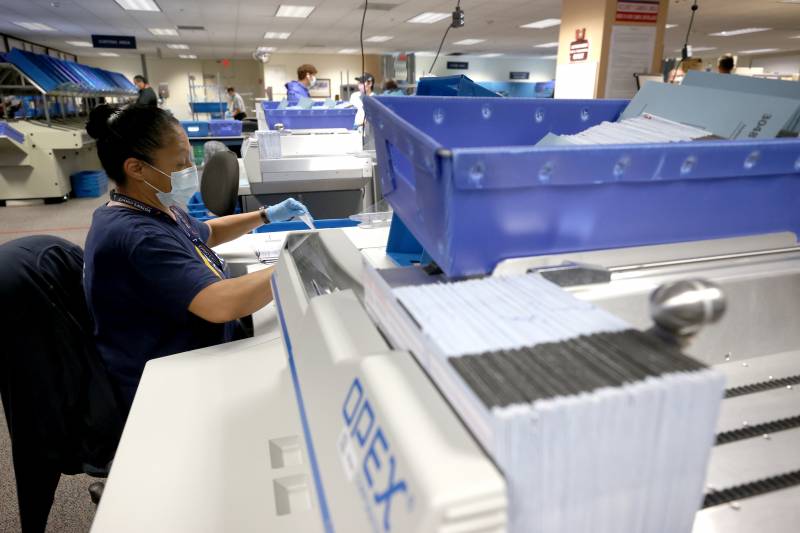The council's decision comes at the conclusion of a year-long review of the city charter, led by an independent commission. Earlier this month, the commission released its recommendations — including allowing noncitizens to serve on city boards and holding mayoral elections in the same year as presidential elections.
The commission did not address the question of noncitizen voting. However, last week, two members of the council, Magdalena Carrasco and Sylvia Arenas, issued a memo recommending that city officials study expanding voting rights to noncitizen immigrants, including those who lack legal authorization to be in the country. In a matter of days, a coalition of South Bay immigrant advocacy groups mobilized a large campaign to voice support at Tuesday's meeting.
"This would be a step forward in acknowledging the contributions of our immigrant communities, who provide this country with labor and financial benefits through the taxes they contribute," said José Servín, director of advocacy and communication with the nonprofit Services, Immigrant Rights and Education Network, which has pushed for years for the city to expand voter eligibility.
Roughly 40% of San José residents were born outside the United States, according to recent U.S. Census figures. While many have become naturalized citizens, many others have not. The share of foreign-born residents in San José is higher than in San Francisco and on par with New York City. San Francisco has allowed noncitizens to vote in school board elections since 2016. And in December, New York City granted legal immigrants the right to vote in all local elections. In addition, 11 municipalities in Maryland and two in Vermont permit noncitizen voting.
Major tech companies with headquarters in the city, such as Zoom and Adobe, depend heavily on foreign-born workers in both technology and service jobs. Immigrants also propel many essential services and thousands of small businesses and power the city's unique cultural and culinary landmarks.

